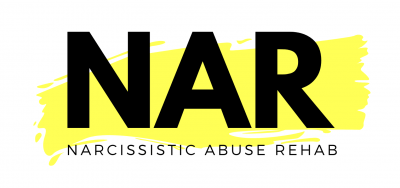Coping with a mental health diagnosis or disorder can be challenging, especially if you don’t have access to the right resources. Clinical social workers are licensed professionals who can help you understand and manage your mental health issues. They can help you focus on therapeutic interventions, comprehensive assessment, and coordinating care. Here’s how clinical social workers can help you cope with your specific needs:
Understanding Clinical Social Work
Clinical social workers are experts in the treatment of mental health problems. They can help you identify the root cause of your issues. According to the causes, they will also help develop a plan to address them. The American Board of Clinical Social Work (ABCSW) states that there are around 250,000 practitioners serving millions today.
The main difference between clinical social work and other therapy is that these workers take an approach that considers all life aspects. You can think of these professionals as those doing social work in health care, just like the name suggests. Hence, they consider all the elements of your life, including physical and financial. In addition to helping clients understand their emotions better, clinical social workers also provide practical tools for managing these feelings.
The Scope of Clinical Social Work in Mental Health Coping
Social work is a profession that helps people develop, maintain, and recover from mental health problems. Social workers can work in various settings, including hospitals, schools, and community agencies. They provide support to individuals, families, and groups. They also help people access services such as housing and employment.
Moreover, they can promote well-being through health promotion activities for people with long-term conditions like diabetes mellitus type 1 (DM1). According to an NCBI article, the assessment and management of psychosocial issues are an essential part of care in patients with DM1. Diabetes distress is a frequent occurrence that can only be managed psychologically.
Therapeutic Interventions
Clinical social work plays a crucial role in providing therapeutic interventions to individuals facing various mental health challenges. Trained in social work and clinical expertise, clinical social workers bring unique skills to the therapeutic process. Their focus extends beyond individual symptoms to encompass the broader social context that may contribute to emotional distress.
Therapeutic interventions in clinical social work often involve the establishment of a therapeutic alliance between the social worker and the client. Building a trusting and collaborative relationship is a foundation for the therapeutic process. This allows clients to explore their thoughts and emotions safely and non-judgmentally.
Clinical social workers employ a variety of evidence-based therapeutic approaches. They draw from modalities such as cognitive-behavioral therapy, psychodynamic therapy, and dialectical behavior therapy. The selection of the most appropriate approach depends on the unique needs and preferences of the individual. These interventions aim to enhance coping skills, improve interpersonal relationships, and facilitate positive behavior and thought patterns changes.
Comprehensive Assessment
A comprehensive assessment is an important part of the treatment process. It allows you to identify your needs, goals, and resources. This helps you make informed decisions about managing your mental health.
A clinical social worker will also help you identify the right treatment options. Some people may require medication; others might benefit from therapy or other forms of support. The goal of therapy is usually not just symptom relief but also self-understanding and personal growth.
Comprehensive assessment and open communication are some skills taught to clinical social workers. As highlighted by Keuka College, clinical social workers perform tasks like intake assessments, mental health services, case management, patient advocacy, etc. Hence, they have the knowledge and expertise to help you in difficult times.
Trauma-Informed Care
Trauma-informed care is a supportive, non-judgmental approach to treatment. It helps people understand the effects of trauma on their lives and identify barriers to treatment. This is especially important for those who have experienced childhood abuse or other types of trauma. Those experiences can affect how you process stress and interact with others.
As Florida State University highlights, adverse childhood experiences are widespread today in the United States. Data shows that around 61% of adults have experienced one form of childhood trauma.
Social workers can use trauma-informed care in many different settings:
- In individual counseling sessions with clients who have suffered from trauma in the past
- In group therapy sessions for individuals who have experienced similar types of abuse or neglect during childhood
Coordinating Care and Advocacy
Clinical social workers can help you coordinate care and advocacy. For example, suppose your mental health problems are so severe that they affect your ability to function independently. In that case, clinical social workers may be able to help coordinate your care with other professionals, such as nurses or psychiatrists. They also can advocate for their clients by helping them access services or benefits they need but might not otherwise receive.
The clinical social worker can arrange these appointments if you need additional treatment. In some cases, this might mean contacting doctors directly. In others, it could involve connecting with community mental health centers that offer free services. According to SAMHSA, there are 500 such centers in the US as of March 2023. The point is that the clinical social worker will work hard to align all treatment aspects properly.
How Clinical Social Workers Cater to Individual Needs
Clinical social workers are trained to be aware of their own biases, and they can work to overcome them. This is important because it means that even if you’re dealing with a particular problem, your social worker will know how to treat it. They know to help you find the right treatment plan for your needs.
Social workers also get to know their clients before starting any treatment plan or therapy session. This allows them to learn more about what’s going on in their lives and anticipate any potential issues that might come up during treatment. This helps ensure everything goes smoothly, and everyone gets what they need from each session together.
In conclusion, clinical social workers are invaluable allies in the journey toward mental health and well-being. Their unique combination of social work principles and therapeutic techniques provides a holistic and person-centered approach to mental health care. If you are struggling with mental health problems, consider reaching out to a clinical social worker. Remember, you don’t have to face these challenges alone. There is support available to help you navigate the complexities of your mental health journey.






